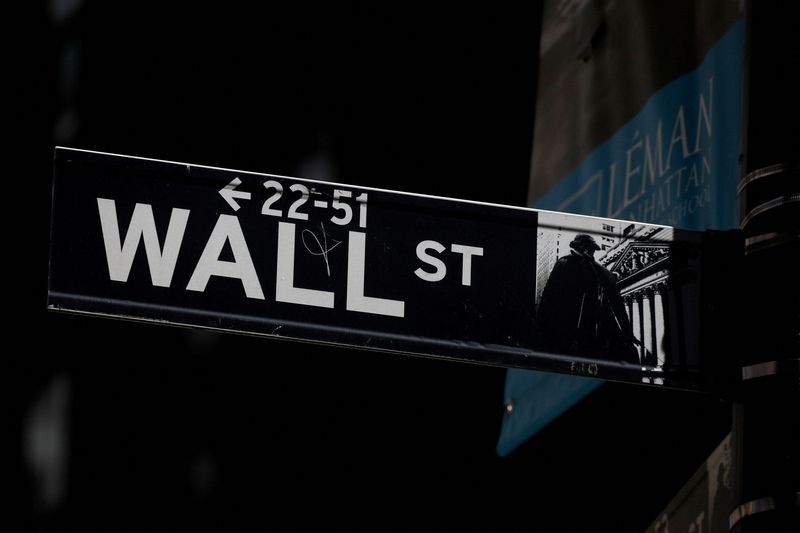By Shankar Ramakrishnan
(Reuters) - Earlier this year a hedge fund structured two trades worth $642 million, the kinds of which have not been seen since the 2008 crisis. It sold insurance to two U.S. lenders against losses on a loan portfolio, and then sold much of that risk to investors.
The trades, a form of re-securitization, were done by Bayview Asset Management after it sold credit default swaps (CDS) to Huntington and Sofi late last year, according to Moody's (NYSE:MCO) reports about the trades seen by Reuters and a person familiar with the transactions.
The source, who requested anonymity to provide details about the deal, said Bayview modeled the deal's structure on similar transactions done before the financial crisis by a large U.S. bank. Separately, six other industry bankers and investors said the deals were the first such transactions they had seen since the crisis to redistribute risk that had already been sold once.
Huntington has said it did the trade as a "capital optimization strategy" in the fourth quarter. It declined to comment further about the deal and the Bayview transactions. Sofi declined to comment beyond its earlier disclosure that it had entered into a CDS on student loans that increased its risk-based capital ratios by greater than 1%.
This form of re-securitizations hark back to some of the complexity and opacity of financial products such as collateralized debt obligations that were blamed for exacerbating the 2008 crisis, the interviews with the industry experts show.
Its return shows how some Wall Street practices from the time, which proved to be problematic as they dispersed risk in ways that were not fully understood, are coming back, albeit in new wrappers.
Demand for high yielding products ahead of an easing Federal Reserve rate cycle and the growth of shadow banking and private markets are encouraging the return of such complex products.
Some experts said the latest trades come with more protections than crisis-era transactions, such as upfront cash requirements, which reduces counterparty risks - a key problem during the crisis.
This time, however, these structures may hide problems in the banking system, making balance sheets look healthier than they are, they said.
Jill Cetina, a finance professor at Texas A&M University, said risks could come, for example, from how banks use the upfront cash collateral given to them as guarantees. It also exposes the system to any governance issues at lightly regulated non-banks that provide the lenders with the capital.
Cetina said regulators should require banks to disclose more about their use of credit risk transfers (CRTs), or trades like those done recently by U.S. banks to offload risk and get regulatory capital relief. Very little information about such transactions is disclosed to the public.
"A turn in the credit cycle is likely to show weaker banks' use of CRTs transformed but did not eliminate risk," she said.
DEAL MECHANICS
In the transactions in question, Coral Gables, Florida-based Bayview, which has $18.5 billion under management, first sold CDS to Huntington National Bank, Sofi Bank and Sofi Lending in November and December last year.
The lenders bought insurance for up to 12.5% of losses in a portfolio of automobile and student loans worth a total of $5.2 billion, according to the Moody’s reports that were issued before they were securitized in March and April.
A few months later, in March, Bayview created bonds from the Huntington CDS and sold chunks of that risk to other investors, according to Informa Global Markets data. It did a similar deal the following month with the Sofi CDS.
Investors in the bonds, whose identities could not be determined, will receive a part of an annual 7.5% insurance premium paid monthly by Huntington taking on some of the risk of defaults, according to the Moody's report about the deal.
SoFi (NASDAQ:SOFI) Bank and SoFi Lending each will pay monthly a fixed premium of 1.2631% per annum on the reference pool and a floating 30-day average of SOFR, the Moody's report about that deal said.
Bayview earned its payout from the arbitrage between the cost of structuring the transactions and the premium received, while also earning returns on some of the risk that it likely kept on its own books, the source familiar with the matter said.
CASH COLLATERAL
The industry experts said the Bayview transactions have more structural safeguards than such deals pre-crisis. This time around the money raised from reselling the insurance payment is deposited into a cash collateral account and the insurance buyer's premium payments are backed by a letter of credit.
The cash collateral in the case of Huntington is held initially at Wells Fargo. A letter of credit from the Federal Home Loan Banks of Cincinnati and San Francisco as well as Goldman Sachs back the transactions for Huntington and Sofi, the Moody's reports say.
It covers up to five months of missed fixed premium payments by them, the deal terms show.
Wells Fargo declined comment, while the Federal Home Loan banks did not provide comments. Goldman did not have an immediate comment on their participation in the trade.
In its reports, Moody’s estimated the net loss for the pool of loans for which insurance is being taken by Huntington at 0.50%. Moody’s also views 4.5% as maximum net losses in a stressed scenario to be consistent with a Aaa rating. Both are well below the 12.5% threshold for which protection is being bought.

Banks were not doing these trades because of an asset problem, but to resolve a capital problem "so investors are very happy to be the bearers of long-term high quality asset risk," said Scott Kenney, a senior analyst at asset manager Columbia Threadneedle Investments.
More such deals are likely. Kenney said Columbia Threadneedle is in talks with a bank about doing a similar trade.